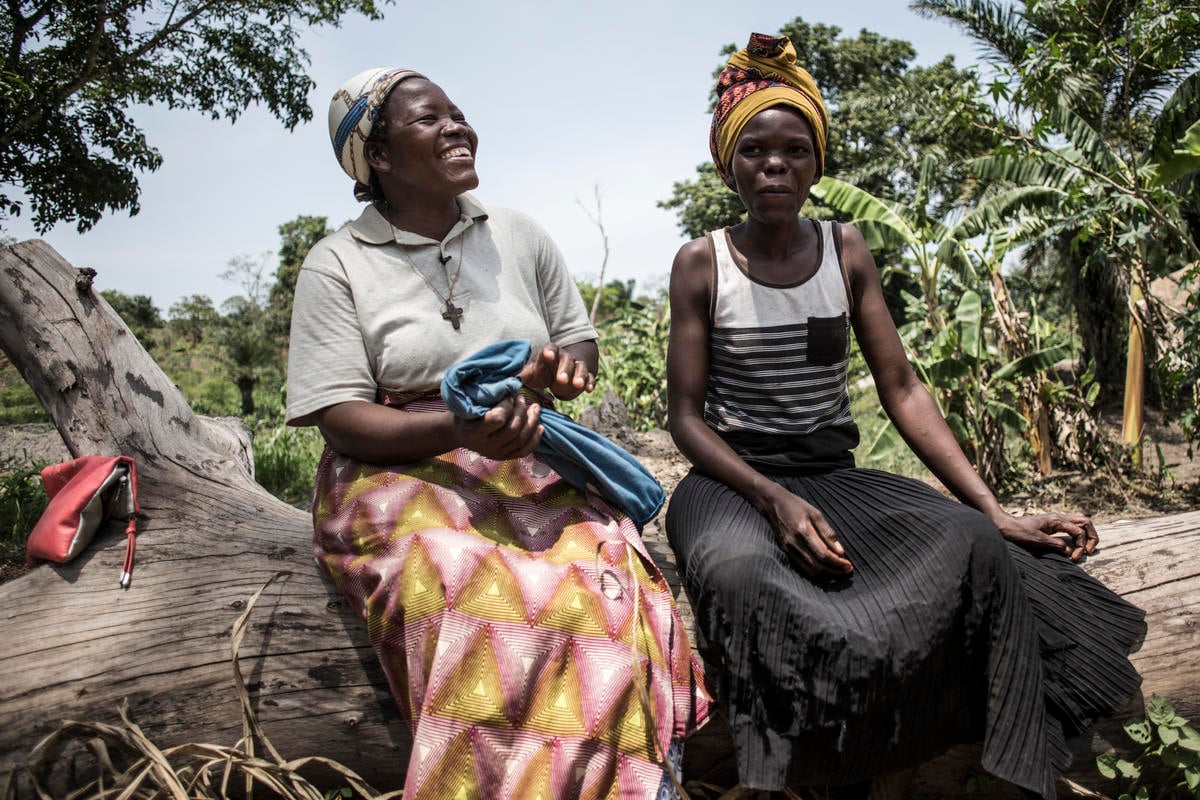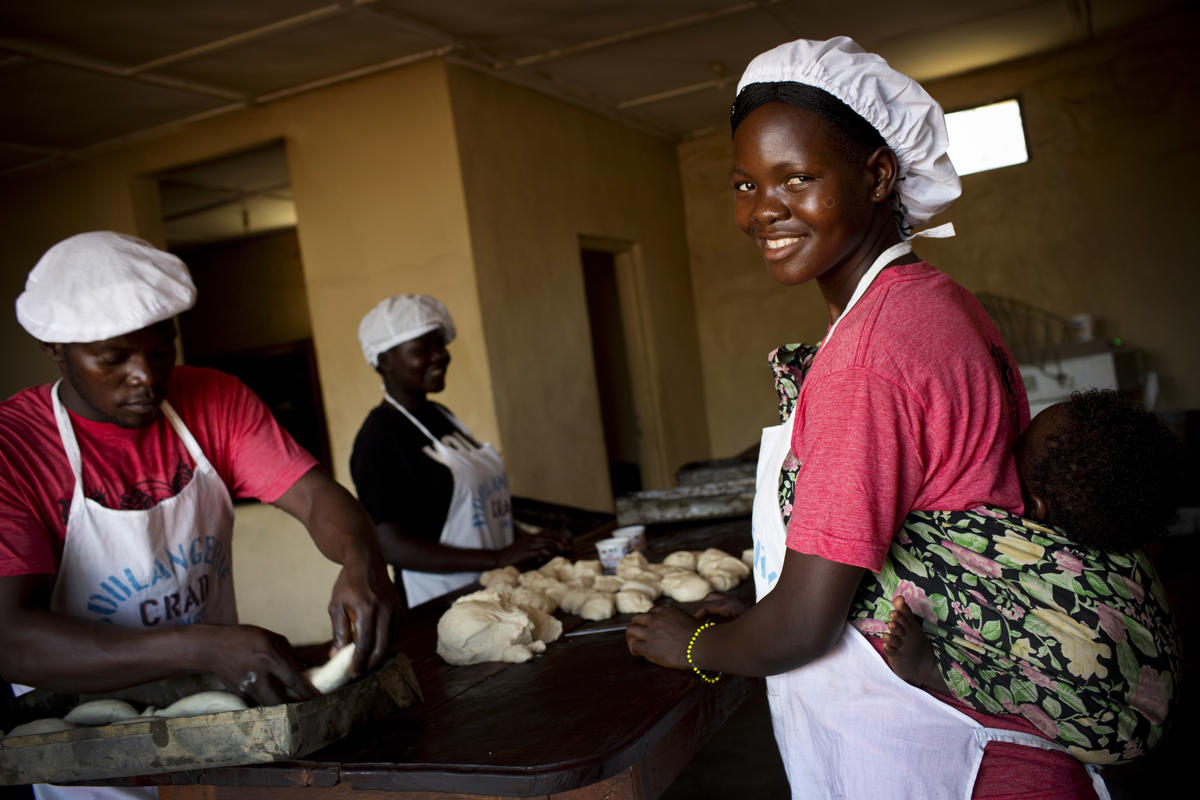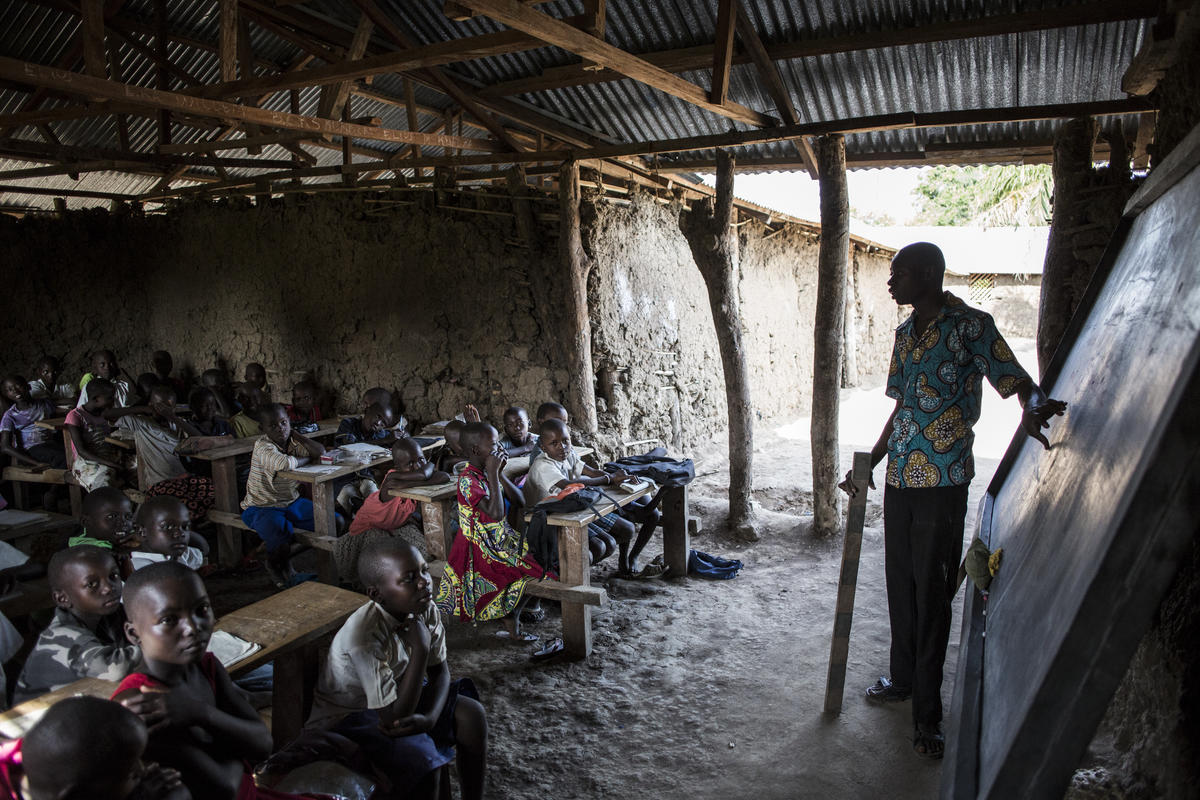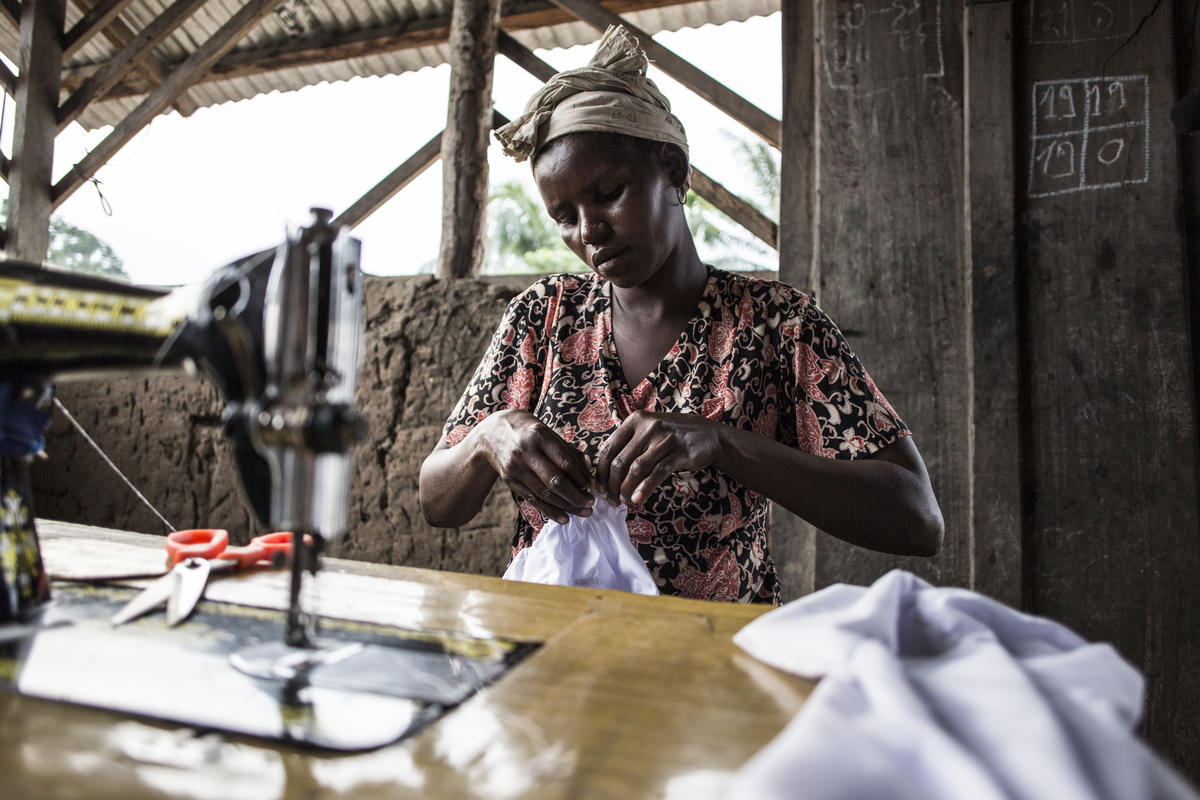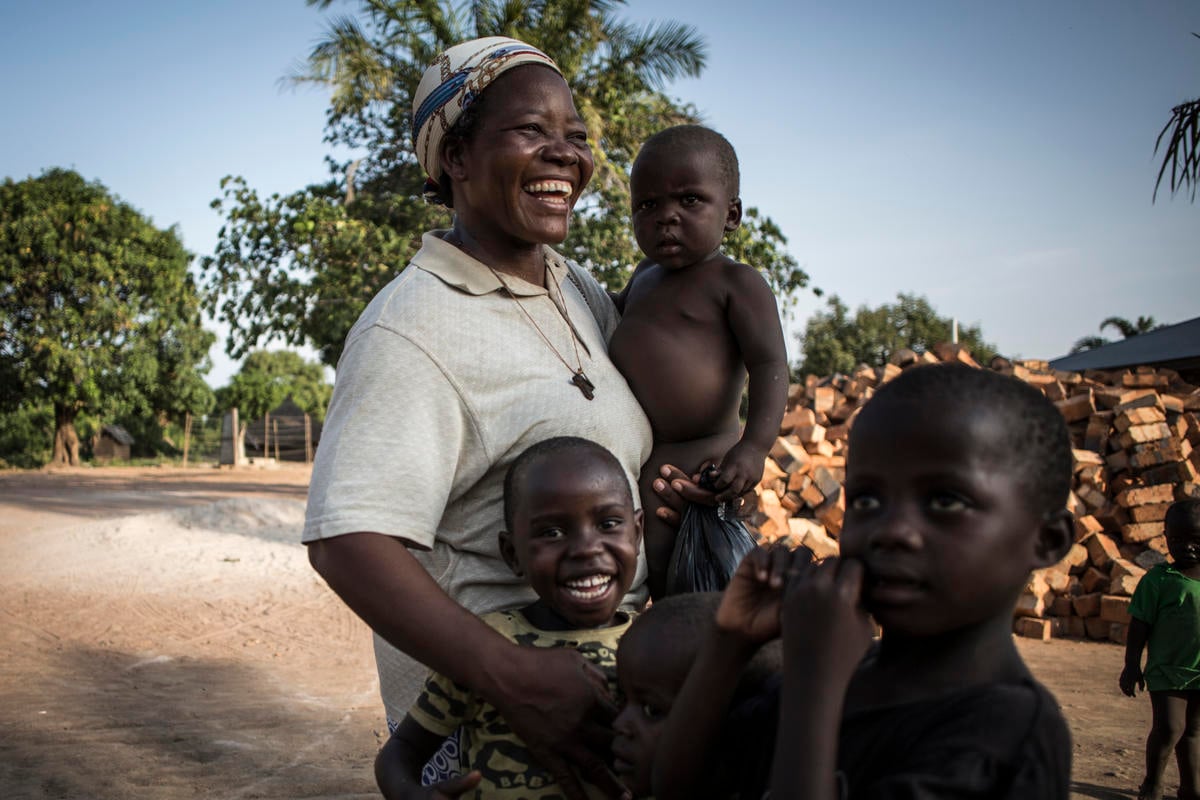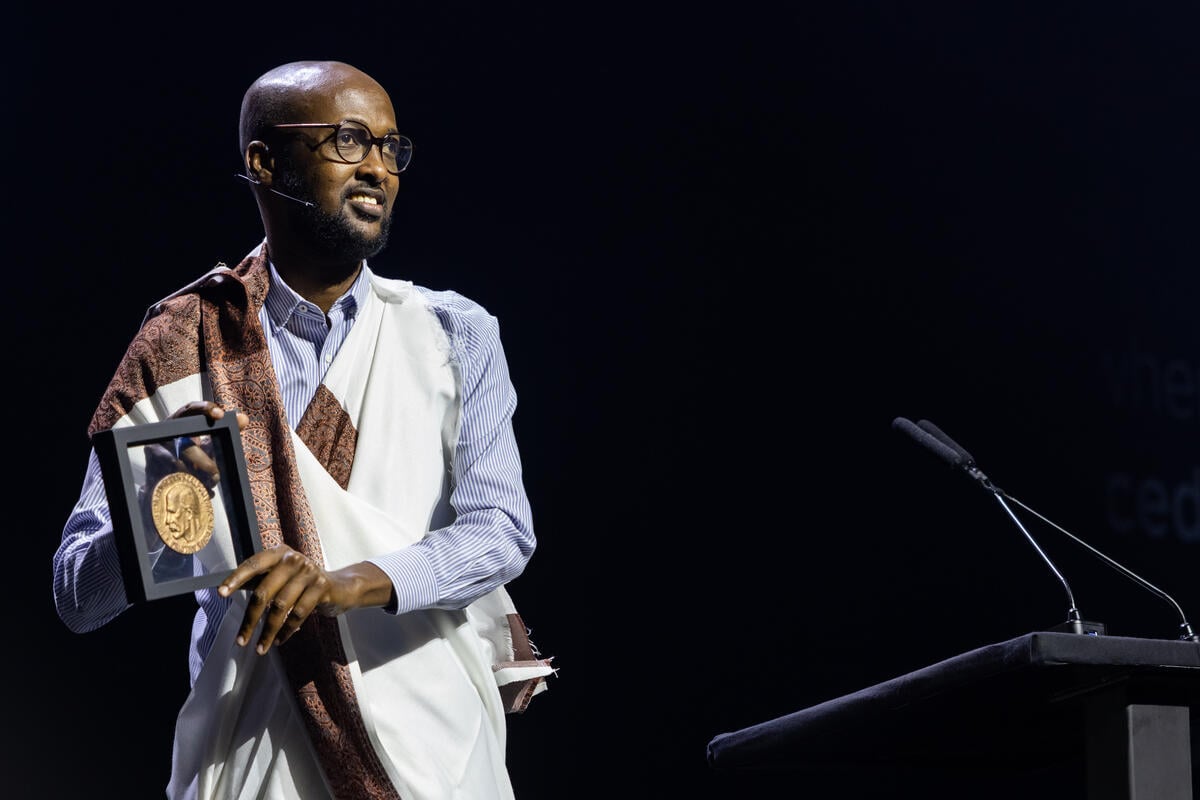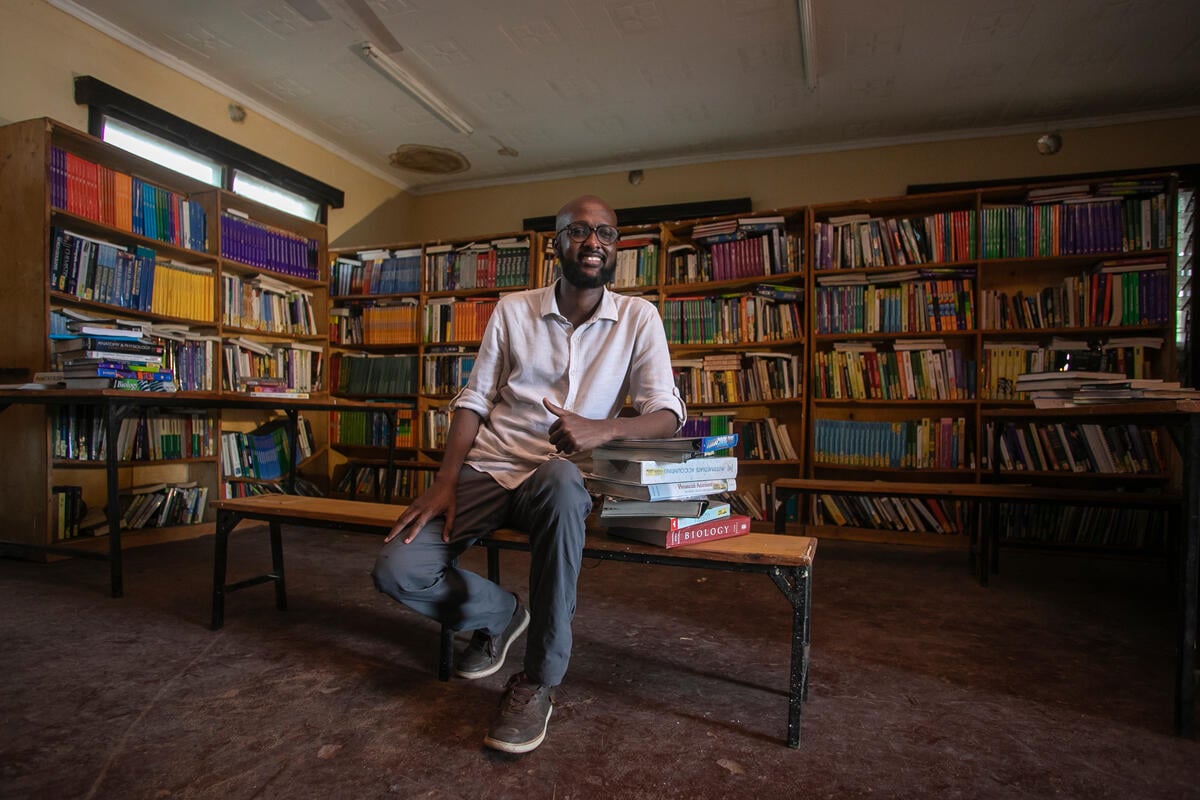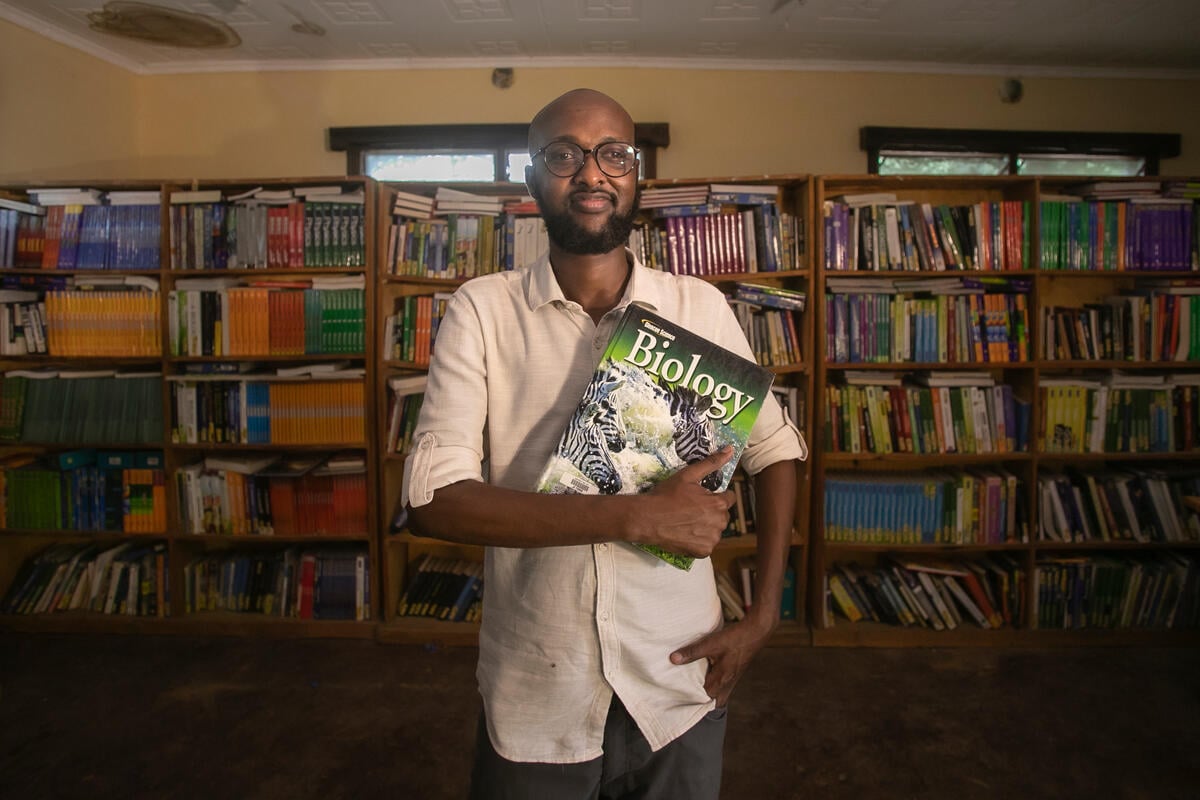Nansen Refugee Award laureate reflects on impact of her work

Nansen Refugee Award laureate reflects on impact of her work
Everyone in the town of Dungu refers to Sister Angélique Namaika as “mother.” The Congolese nun has cared for thousands of vulnerable people in this volatile region in the north-east of the Democratic Republic of the Congo (DRC), which has endured decades of violence and conflict.
The 52-year-old nun spent years helping women recover from the effects of the region’s conflict – most of them survivors of brutal violence and suffering at the hands of armed groups such as the Lord’s Resistance Army (LRA).
In 2013, UNHCR, the UN Refugee Agency, recognized her exceptional courage and remarkable dedication to helping survivors by presenting her with the prestigious Nansen Refugee Award.
Following the international recognition, she used the prize money and recognition it brought her to increase and improve several activities at her Centre for Reintegration and Development, which to date has helped transform the lives of more than 22,500 women and girls.
“I care a lot for women because I see mankind’s foundation is in their hands.”
“I care a lot for women because I see mankind’s foundation is in their hands,” she explains. “We say that educating a woman is educating an entire nation.”
Sister Angélique started helping vulnerable women affected by the war in the Congo in 2008. Often, their families had been killed or had disappeared, and their children abducted and forced to become child soldiers. The women were often victims of abduction, abuse, beatings and rape.
“I wanted to listen to them, share food with them and let them know they were not alone,” she says.
She also took care of orphans, under extremely difficult circumstances and with meager resources.
“Some women would ask me to take care of their children because they were unable to do so,” she recalls, adding that she comforted them, despite their cries of hunger, even when she had no means to feed them.
“I used to cry and pray for a way to help these women and children,” recalls Sister Angélique. “An inner voice would tell me, even if the entire world abandons you, I will never abandon you.”
The Nansen laureate adds that when UNHCR contacted her about her work and informed her about the award and the US$100,000 prize money, she knew everything would change.
“My prayers were answered,” she says. “Because of the prize, I travelled across Europe and even met the Pope at the Vatican.”
Her first investment with the prize money was to set up a semi-industrial bakery, equipped with a new 25-kilogram-capacity oven. She wanted to ensure that the maximum number of women could work there and earn an income from making and selling bread. Today, there are over 50 women working in the bakery.
She also built a primary school in January 2015 and enrolled 133 children whose parents could not afford to pay fees. Today, the centre has expanded to include a kindergarten, a primary and a secondary school with a combined enrollment of over 1,500 children. Since its inception, more than 4,000 students have had the chance to learn there.
“Education has always been a great concern for me,” says Sister Angélique. “I was afraid these children would lose out on a better life if they didn’t have the opportunity to study.”
Receiving the Nansen Refugee Award provided a lot of visibility to Sister Angélique’s activities and attracted more donors, support and well-wishers. She was able to build a paediatric centre, where more than 14,000 patients have received treatment since it opened in October 2014.
She also set up classes where women could learn to read and write, getting access to training opportunities and becoming more self-reliant.
“The women’s socio-economic reintegration into society helped them overcome the trauma they went through,” explains Sister Angélique.
“Sister took care of us.”
Clémentine, a survivor of LRA attacks, is one of those who overcame adversity, thanks to Sister Angélique’s help. She fled her home in 2008 after her brother had been abducted by an armed group.
“Sister took care of us,” says Clémentine. “I was able to attend a sewing workshop and now I work as a trainer, teaching other women how to sew.”
The grueling effects of conflict and war led Sister Angélique down a path of helping others, and for that, she looks back at her experience with gratitude.
“Mother, mother!” a group of children shout enthusiastically when they spot her walking into the centre. They run towards her and engulf her in a collective embrace.
“This is why I can say today that I no longer cry,” she says with a smile.


